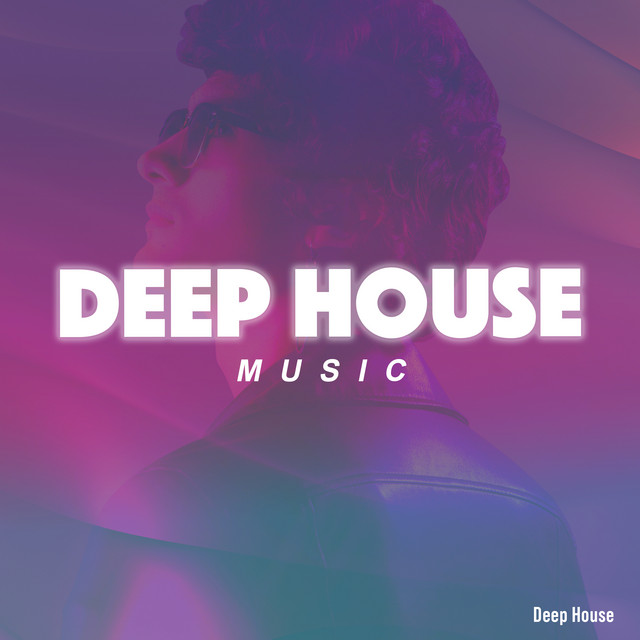Editorial
South African Deep House Music: A Cultural Symphony of Identity and Global Impact

South Africa’s music scene is an intricate tapestry woven with diverse cultural threads, and at its core lies the captivating rhythm of Deep House music. Originating from the underground clubs of Chicago and New York, Deep House found a soulful home in South Africa, where it evolved into a genre that not only represents the nation’s identity but resonates on the global stage. This article explores the fascinating journey of South African Deep House music, delving into its historical roots, cultural significance, and its role as a catalyst for cross-cultural understanding. It also explores the genre’s future prospects and its continuing impact on shaping South Africa’s cultural identity in an ever-changing world.
Origins and Evolution of Deep House in South Africa
In the late 1980s, as Apartheid was fading, South Africa’s music landscape underwent a profound transformation. The underground dance scene became a fertile ground for young artists and DJs to experiment with a mix of House music and traditional African rhythms. Inspired by the freedom and creative expression of House music, local artists infused their sounds with elements of indigenous genres such as Kwaito and Mbaqanga, giving rise to the distinct South African Deep House sound.
Local Musical Elements and Cultural Infusion in the Genre
What sets South African Deep House apart is its deep connection to the country’s rich musical heritage. Artists skillfully incorporate traditional African instruments, such as marimbas, kalimbas, and drums, blending them with electronic beats and soulful vocals. For example, the group “Uhuru” integrated traditional Zulu chants into their hit song “Y-Tjukutja,” creating a dancefloor anthem that both captivated local audiences and gained international recognition.
Amapiano: The New Wave of South African Deep House
In recent years, Amapiano has emerged as a subgenre of Deep House, gaining immense popularity both locally and internationally. Characterized by its catchy piano melodies and infectious beats, Amapiano reflects a vibrant and youthful spirit, becoming the soundtrack of contemporary South African culture. Artists like Kabza De Small and DJ Maphorisa are at the forefront of this movement, blending the signature elements of Amapiano with Deep House influences, further enriching the genre’s cultural significance.
Dance Culture and Community: Deep House’s Social Impact
Deep House music’s influence extends far beyond its mesmerizing tunes; it has become a cultural movement that brings people together on the dancefloor. The energetic dance culture fostered by Deep House creates a sense of community and unity, transcending racial and social boundaries. For instance, popular venues like “Shimmy Beach Club” in Cape Town and “Taboo Nightclub” in Johannesburg regularly host Deep House events that attract diverse crowds, reinforcing the genre’s role as a unifying force.
Global Reach: South African Deep House on the International Stage
The musical journey of South African Deep House extends beyond the nation’s borders, captivating audiences worldwide. Influential artists like Black Coffee and Culoe De Song have carried the torch of South African Deep House to international stages, contributing to the genre’s global appeal. Black Coffee’s collaboration with international stars like David Guetta and Drake has further solidified South African Deep House’s place on the global music map.
Addressing Social and Political Issues: Deep House as a Voice
Deep House artists have embraced their role as cultural commentators, using their music to address social and political issues in South Africa. The lyrics often touch on themes of unity, resilience, and the pursuit of freedom. For instance, Culoe De Song’s track “Webaba” expresses a call for unity and acknowledges the nation’s collective struggle for freedom and equality.
Music Production Techniques and Identity: A Unique Blend
The process of creating South African Deep House music is an art in itself. Producers blend traditional instruments and vocals with cutting-edge electronic production techniques, crafting a sound that reflects the intricate tapestry of South Africa’s identity. This fusion serves as a bridge between the nation’s past and its aspirations for the future. For example, DJ Black Coffee’s Grammy-nominated album “Pieces of Me” showcases a seamless fusion of traditional rhythms and contemporary electronic beats.
Challenges and Opportunities for South African Deep House Artists
While South African Deep House has seen remarkable success, artists face the challenge of maintaining their cultural identity while embracing the global music industry’s demands. The pressure to conform to international trends without losing their authenticity poses a delicate balancing act. However, these challenges also present opportunities for innovation and collaboration, fostering a dynamic and evolving musical landscape. Artists like Shimza have taken advantage of online platforms to reach global audiences while staying true to their South African roots.
Future Prospects: South African Deep House’s Continuing Impact
Looking ahead, South African Deep House music holds immense potential to continue shaping the nation’s cultural identity. As artists embrace technology and expand their global reach, they carry the legacy of their musical forebears, ensuring that the genre remains a symbol of unity and pride for generations to come. The fusion of traditional roots and modern sensibilities will continue to set South African Deep House apart, elevating it as a genre that not only resonates with South Africans but transcends borders, delivering a powerful message of harmony and cultural celebration.
South African Deep House music is more than just a genre; it is an embodiment of the nation’s identity and a testament to the power of music as a force of unity and cultural expression. Rooted in tradition yet constantly evolving, Deep House showcases the richness of South Africa’s heritage while embracing global influences. As artists and audiences alike continue to dance to the rhythm of Deep House, the genre remains a symbol of hope, resilience, and shared humanity, bridging the past, present, and future in one harmonious symphony of sound. Through the fusion of traditional elements with contemporary beats, South African Deep House continues to celebrate the country’s cultural diversity and serve as a harmonious ambassador of South Africa’s musical identity to the world.
































